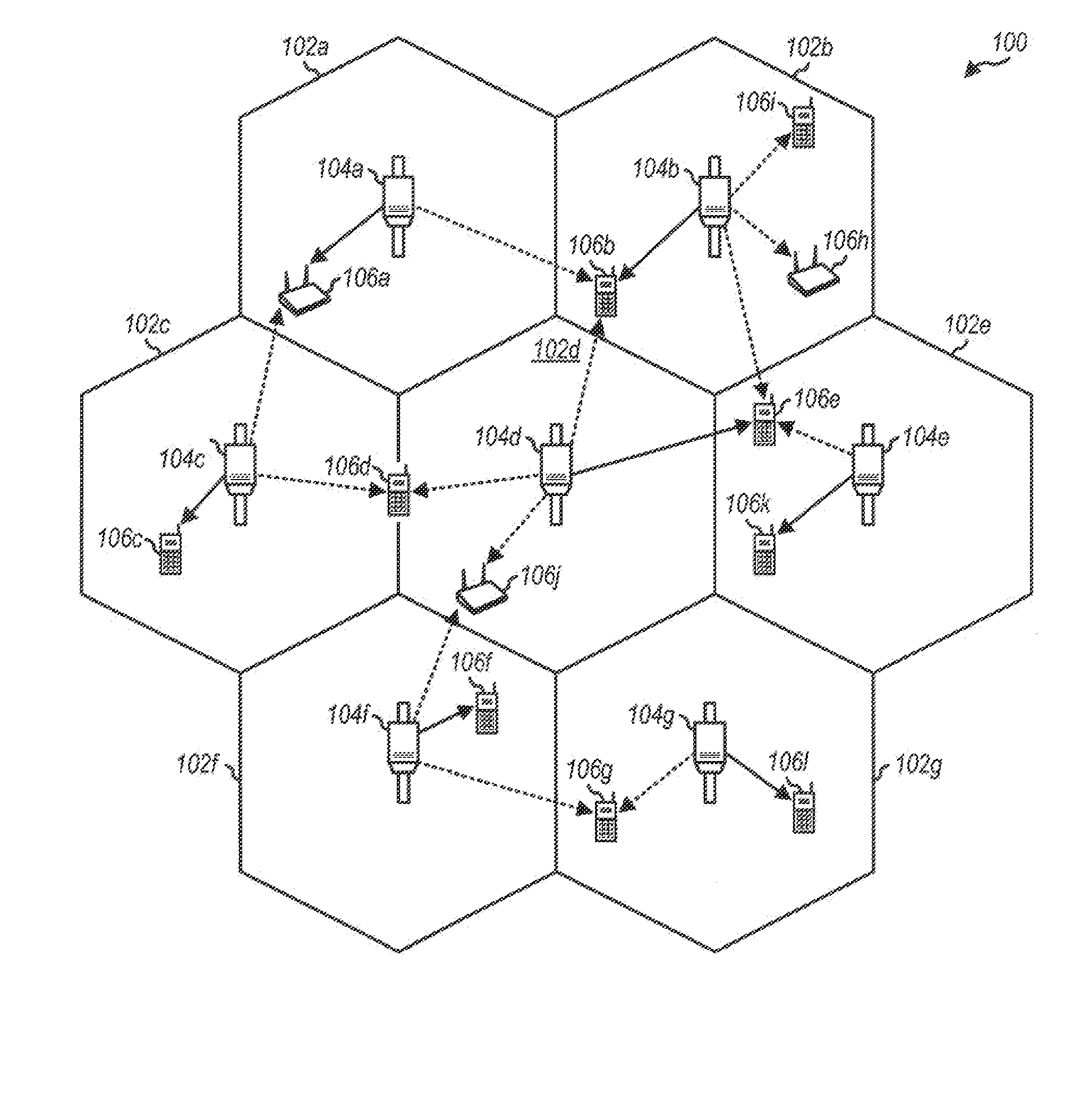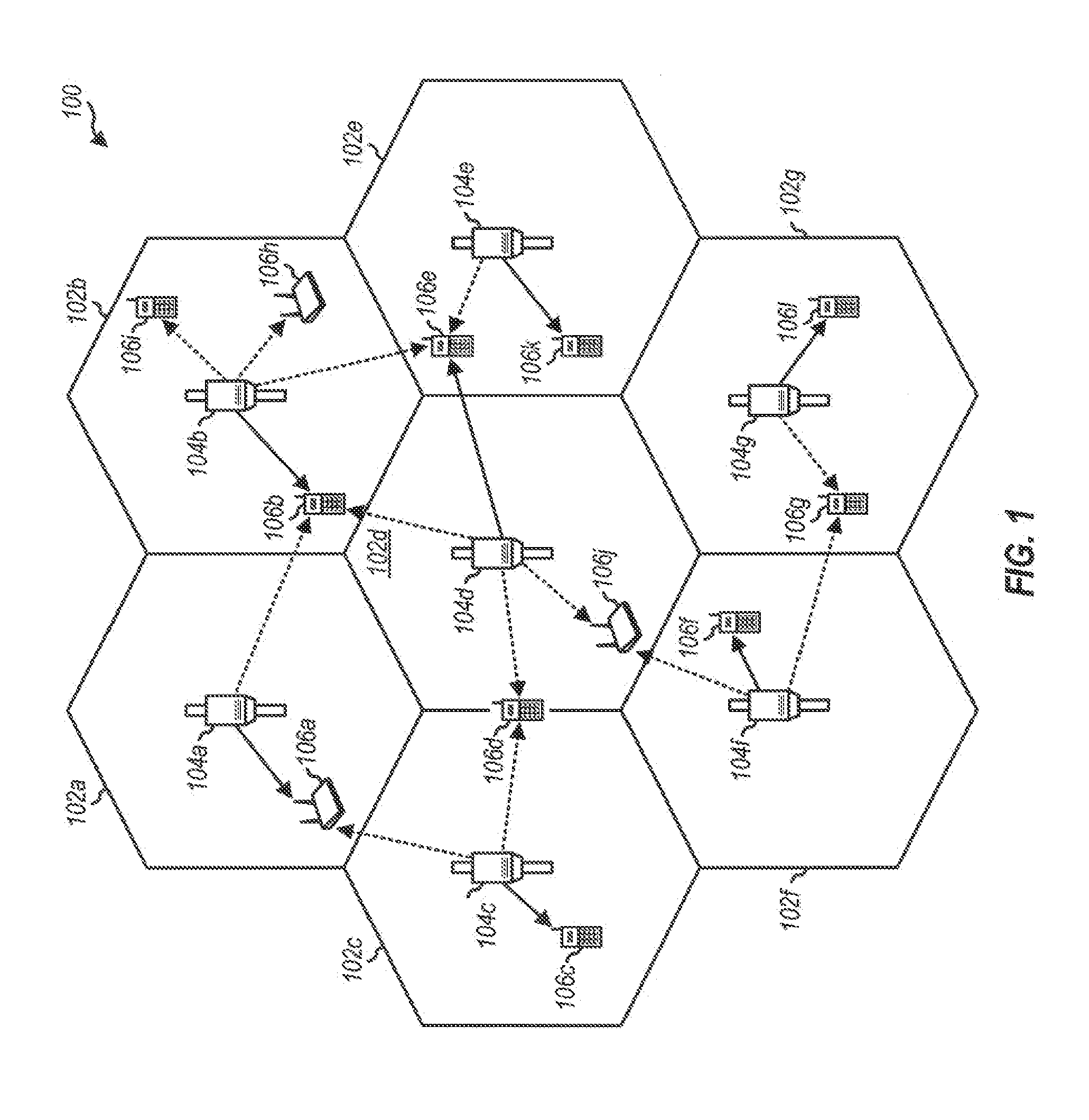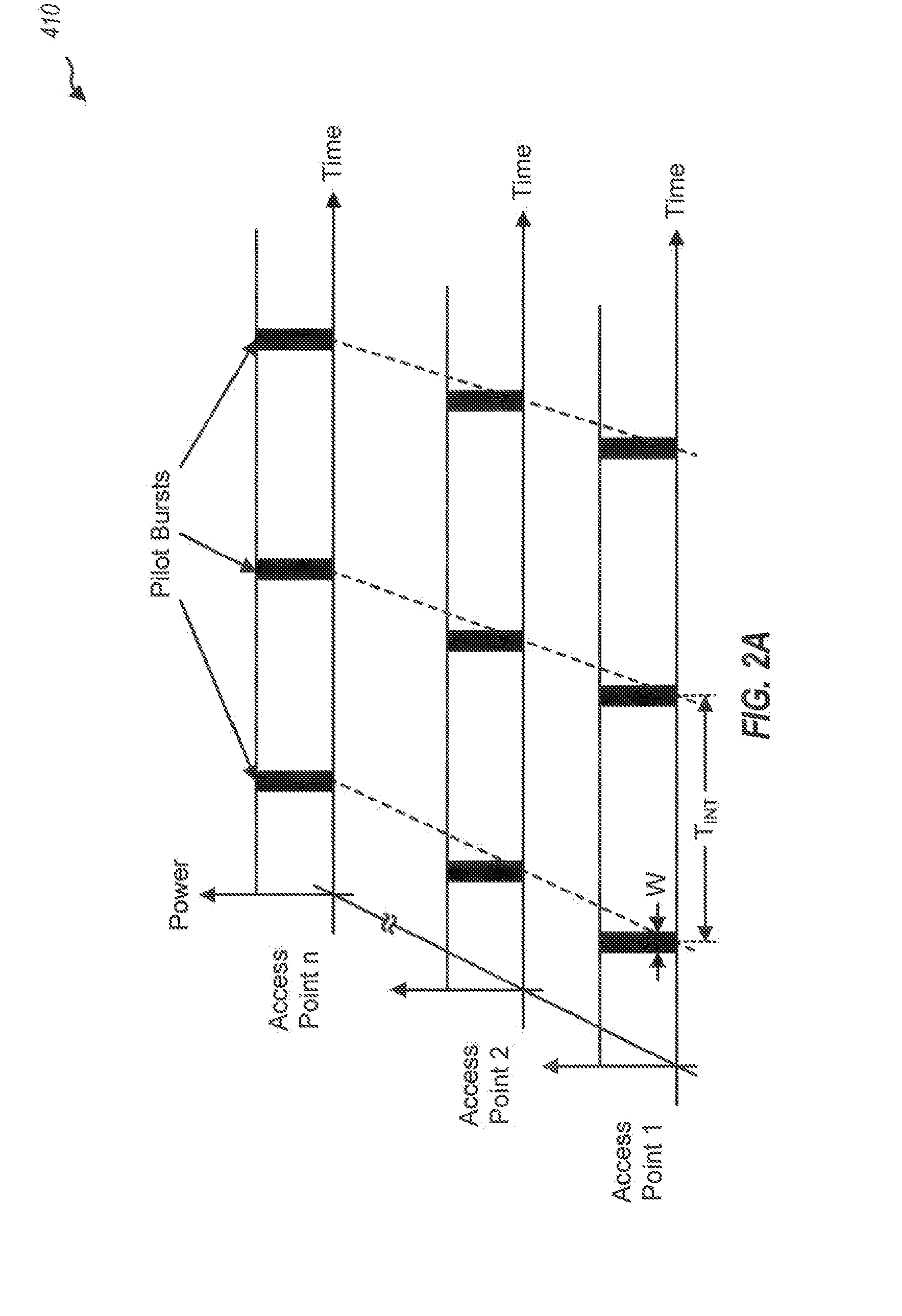Pilot reference transmission for a wireless communication system
a wireless communication system and pilot reference technology, applied in the field of data communication, can solve the problems of affecting the quality of the received pilot reference, affecting the quality of the transmission received at the remote terminal, and worse interference, so as to minimize the amount of interference, and maximize the amount of interference
- Summary
- Abstract
- Description
- Claims
- Application Information
AI Technical Summary
Benefits of technology
Problems solved by technology
Method used
Image
Examples
Embodiment Construction
[0023]FIG. 1 is a diagram of a wireless communication system 100 that supports a number of users and transmits pilot references. System 100 provides communication for a number of cells 102a through 102g, with each cell 102 being serviced by a corresponding access point 104 (which may also be referred to as a base station). Various access terminals 106 (which may also be referred to as remote terminals or mobile stations) are dispersed throughout the system.
[0024] In an embodiment, each access terminal 106 may communicate with one access point 104 on the forward link at any given moment, and may communicate with one or more access points on the reverse link depending on whether the access terminal is in soft handoff. The forward link (i.e., downlink) refers to transmission from the access point to the access terminal, and the reverse link (i.e., uplink) refers to transmission from the access terminal to the access point. System 100 may be designed to conform to a particular CDMA sta...
PUM
 Login to View More
Login to View More Abstract
Description
Claims
Application Information
 Login to View More
Login to View More - R&D
- Intellectual Property
- Life Sciences
- Materials
- Tech Scout
- Unparalleled Data Quality
- Higher Quality Content
- 60% Fewer Hallucinations
Browse by: Latest US Patents, China's latest patents, Technical Efficacy Thesaurus, Application Domain, Technology Topic, Popular Technical Reports.
© 2025 PatSnap. All rights reserved.Legal|Privacy policy|Modern Slavery Act Transparency Statement|Sitemap|About US| Contact US: help@patsnap.com



